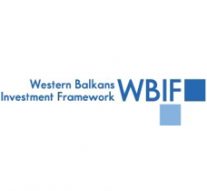
The Energy Outcomes of the Sofia Summit
Energy 22 May 2018The Sofia summit on the 17th of May between EU28 leaders and those of the six nations in the Balkan region ended with a “Declaration” that reaffirms the European vocation of the region. The parties agreed to implement a set of projects, mostly financed by the EU, to strengthen democracy, economy and “connectivity.”
In the energy field, the EU can play a leading role in enhancing state resilience across the Western Balkans through the continued political support for expedient regulatory and legislative reform and the establishment of a financially attractive environment to secure long-term investments. There are also opportunities for cooperation in the Western Balkans with external actors such as Russia, China, or the Gulf States, thereby demonstrating the EU’s commitment to the stability and security of the region, and to the establishment of an integrated European energy market.
The transition to transparent and open energy markets through regulatory and legislative reform in the region is generally slow: progress varies in rate and extent from country to country, and it is often obstructed by political uncertainty and government interference in judicial affairs. The establishment of a financially attractive environment in order to secure investment for future energy infrastructure is also a difficult process; as denounced by enterprises, political instability, corruption, and access to finance are the main obstacles to business in the region.
In addressing the key challenges of transitioning towards transparent and open energy markets and securing investment for energy infrastructure in neighbouring countries, the EU has implemented the Treaty on establishing the Energy Community (EnC), to which all of the Western Balkan countries are party, and has established numerous financing instruments such as the Instrument for Pre-accession Assistance (IPA) and Western Balkan Investment Framework (WBIF, a joint initiative between the EU, international financial institutions, bilateral donors, and Western Balkan governments).
The EnC has been pivotal in developing Western Balkan energy sectors through the identification of Projects of Energy Community Interest that would contribute to energy market integration, and the export of the acquis communautaire on energy, intended to achieve an integrated, transparent and open energy market across the EnC.
In late 2016, the Ministerial Council of the EnC adopted a decision to implement ten Projects of Energy Community Interest, nine of which involve the Western Balkans (although the majority of these projects are to be commissioned post-2020). These include five electricity projects establishing a trans-Balkan corridor involving Bosnia and Herzegovina, Serbia, Montenegro, and Romania, an Albania-former Yugoslav Republic of Macedonia electricity interconnectors, as well as Serbia-Bulgaria, Serbia–former Yugoslav Republic of Macedonia, and Albania-Kosovo gas interconnectors. Transposing and implementing the acquis communautaire on energy has also proven to be a challenging endeavour.
Through its latest IPA, the European Commission has provided €144 million in grants to numerous infrastructure projects. Additionally, the WBIF has allocated €1.3 billion to infrastructure projects in the Western Balkans, supporting approximately €13.5 billion in total investment.
Nevertheless, due to the relatively limited involvement of the private sector, a number of barriers remain in securing investment for infrastructure projects in the long term. According to the European Bank for Reconstruction and Development and the World Bank, transition indicators are demonstrating an improving investment attitude, but private investment continues to be restricted primarily by political uncertainty.
The EU could pursue these objectives through diplomatic efforts, but also exerting its considerable commercial influence and limiting or withholding investments if reforms are not undertaken. There is also room for cooperation with other external actors in the Western Balkans, whilst developing national energy portfolios across the region. For example, the EU could cooperate with China and other foreign investors in order to develop alternative sectors of Western Balkan economies.
Enhancing resilience in the Western Balkan energy sectors would not only help ensure secure and economically viable energy supply, it would advance the EU’s longstanding policy of creating an integrated European gas market. Though ultimately the interrelation between the energy sector and national economy shows how policies in both areas should ideally be mutually–reinforcing, in order to maximise the benefits to the region. These goals arose from the Sofia Summit, whose final Declaration has agreed to promote a market – and investment – friendly environment in the Western Balkans to move faster towards a digital economy and to sustainable and climate-friendly societies in line with the Paris Agreement. Energy security will be prioritised, including through improved energy efficiency, better cross–border inter–connections, diversification of sources and routes, as well as a balanced energy mix better integrating renewable energy.


